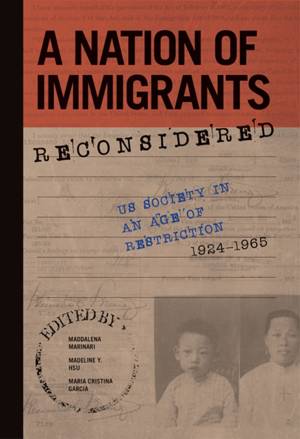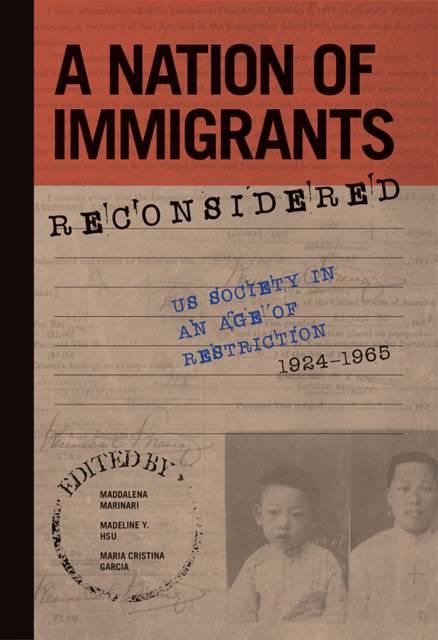
- Afhalen na 1 uur in een winkel met voorraad
- Gratis thuislevering in België vanaf € 30
- Ruim aanbod met 7 miljoen producten
- Afhalen na 1 uur in een winkel met voorraad
- Gratis thuislevering in België vanaf € 30
- Ruim aanbod met 7 miljoen producten
Zoeken
A Nation of Immigrants Reconsidered
Us Society in an Age of Restriction, 1924-1965
€ 127,45
+ 254 punten
Omschrijving
Scholars, journalists, and policymakers have long argued that the 1965 Immigration and Nationality Act dramatically reshaped the demographic composition of the United States. In A Nation of Immigrants Reconsidered, leading scholars of immigration explore how the political and ideological struggles of the "age of restriction"--from 1924 to 1965--paved the way for the changes to come. The essays examine how geopolitics, civil rights, perceptions of America's role as a humanitarian sanctuary, and economic priorities led government officials to facilitate the entrance of specific immigrant groups, thereby establishing the legal precedents for future policies. Eye-opening articles discuss Japanese war brides and changing views of miscegenation, the recruitment of former Nazi scientists, a temporary workers program with Japanese immigrants, the emotional separation of Mexican immigrant families, Puerto Rican youth's efforts to claim an American identity, and the restaurant raids of conscripted Chinese sailors during World War II.
Contributors: Eiichiro Azuma, David Cook-Martín, David FitzGerald, Monique Laney, Heather Lee, Kathleen López, Laura Madokoro, Ronald L. Mize, Arissa H. Oh, Ana Elizabeth Rosas, Lorrin Thomas, Ruth Ellen Wasem, and Elliott Young
Specificaties
Betrokkenen
- Uitgeverij:
Inhoud
- Aantal bladzijden:
- 328
- Taal:
- Engels
- Reeks:
Eigenschappen
- Productcode (EAN):
- 9780252042218
- Verschijningsdatum:
- 30/12/2018
- Uitvoering:
- Hardcover
- Formaat:
- Genaaid
- Afmetingen:
- 155 mm x 236 mm
- Gewicht:
- 598 g

Alleen bij Standaard Boekhandel
+ 254 punten op je klantenkaart van Standaard Boekhandel
Beoordelingen
We publiceren alleen reviews die voldoen aan de voorwaarden voor reviews. Bekijk onze voorwaarden voor reviews.










